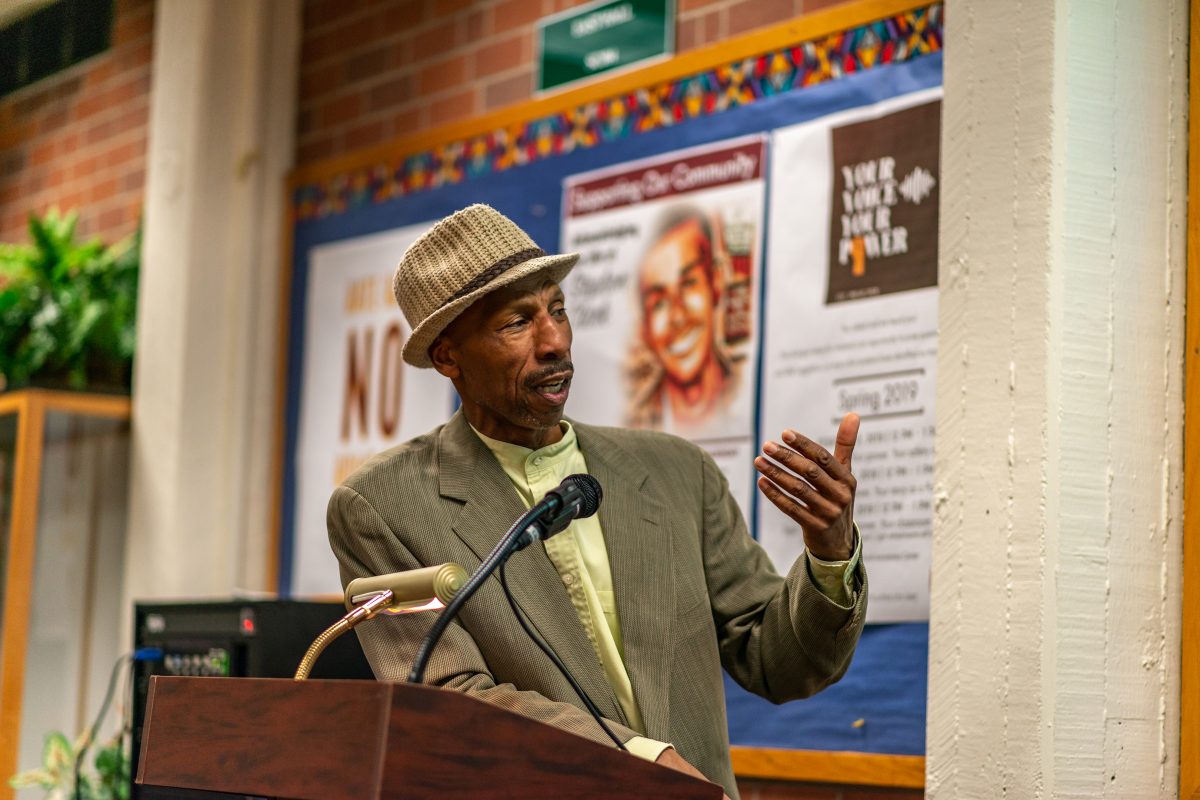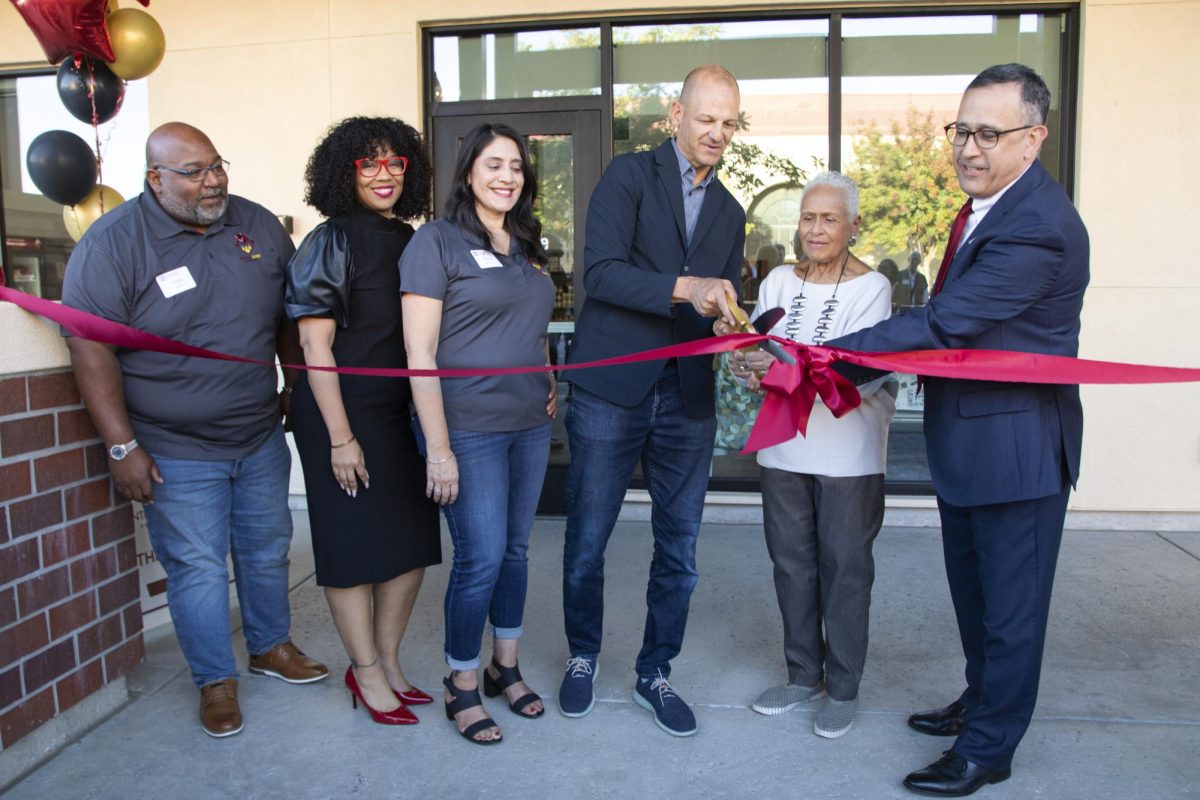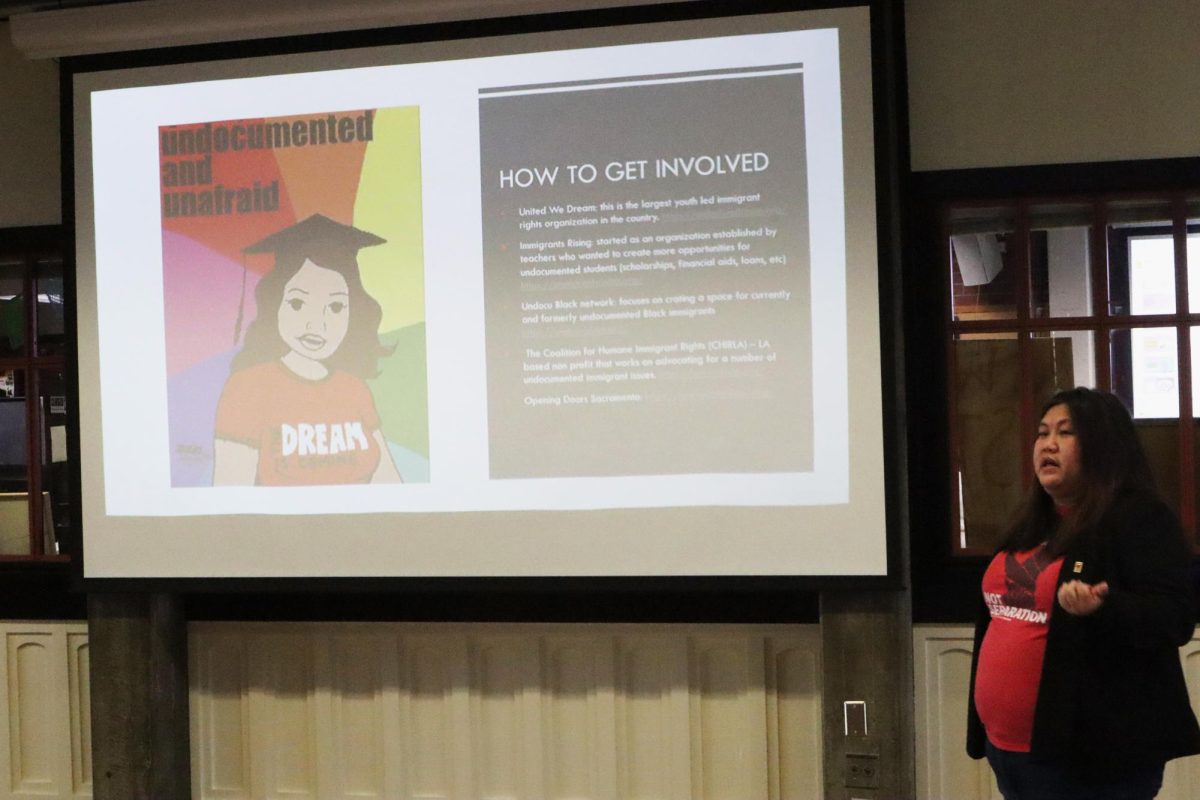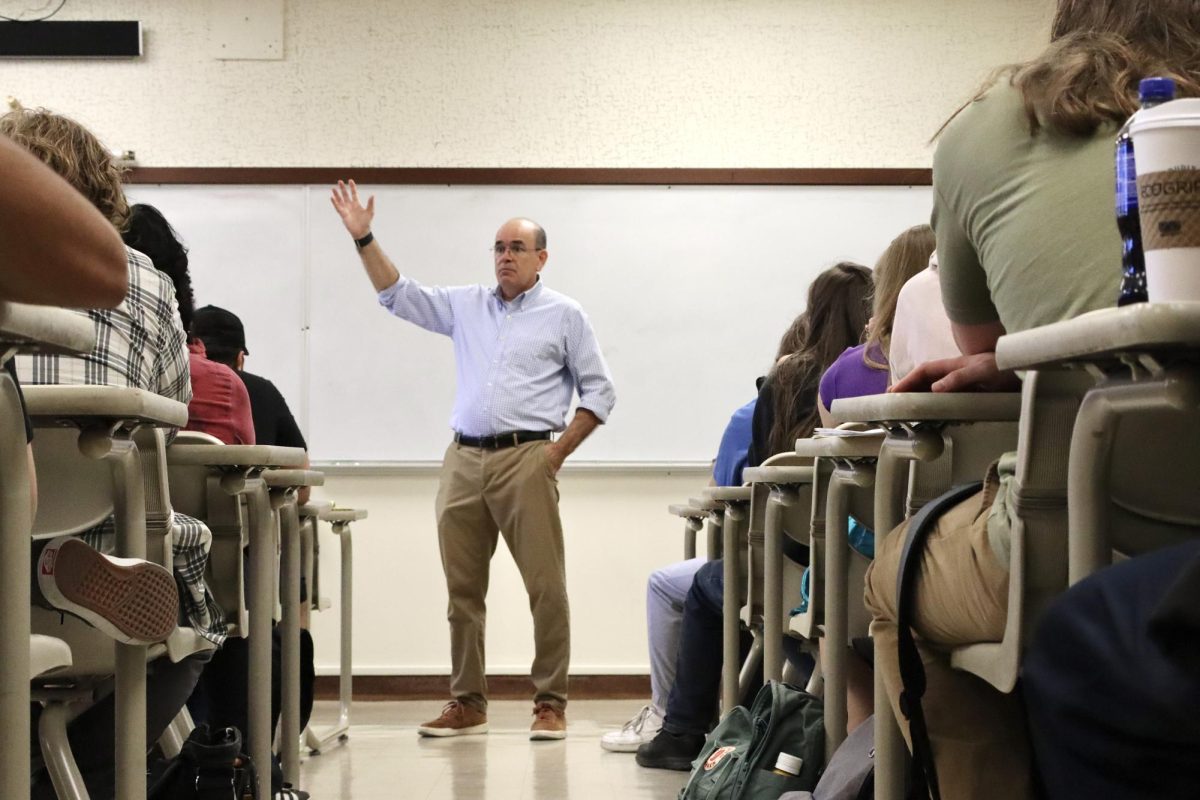by Luan Nguyen | Staff Writer | [email protected]
The City College Cultural Awareness Center welcomed ethnic studies lecturer Rashad Baadqir from California State University, Sacramento, March 12 to present a talk on the life and legacy of the famous civil rights leader Malcolm X.
Baadqir began his talk at noon with some history of the post Civil War and reconstruction era, outlining the different black social movements such as “Pan-Africanism,” “Afrocentrism” and “Black Nationalist,” leading to the rise of the Nation of Islam when Malcolm X first gained prominence as its primary spokesperson.
“Anybody know what the X represents?” asked Baadqir. “What does that represent in math?”
There were fewer than 10 students in the room, at least three of whom had indicated that they were there, in part, because of a class assignment.
“X means unknown,” said Baadqir. “They are disconnecting from the slave names which many black people have. Their names are the names of their slave masters — they are disassociating with that.”
Baadqir described the racial profiling and police brutality experienced by young black males in the 1960s to the present day, and the issues confronting blacks in America such as discrimination, the wealth gap and education. Many of the things Malcolm X spoke out about, said Baadqir, are still relevant today.
According to Baadqir, Malcolm advocated that blacks move not toward senseless violence but to stand up for themselves and to assert their human rights.
Baadqir paraphrased Malcolm’s message that people should be peaceful, courteous, obey the law, and respect everyone. But all bets are off once someone puts their hands on you, he said, noting that Malcolm believed that people have the right to defend ourselves.
During part of his talk, Baadqir showed a YouTube video of his interview with Attallah Shabazz, the eldest daughter of Malcolm X. According to Baadqir, the interview took place in Los Angeles in 1996, and was centered around Shabazz’s experience growing up and what her father’s legacy meant for her.
In the interview, Shabazz noted that her parents had always worked together as a team and that, in her view, being a strong woman doesn’t prelude the right to be vulnerable.
“When women in this day and age who are striving to be strong and independent — singularly independent — in this man’s world, we often find ourselves saying, ‘I can do without him.’ But you do really wanna? Isn’t companionship a welcoming thing?” said Shabazz. “Why do we, in finding our own strength, have to separate ourselves from the other part?”
Shabazz believed that being a Muslim wife didn’t diminish her mother’s strength as a woman, that her parents’ relationship was one of equal partnership and mutual respect.
“People state that Muslim wives walk behind their men. [When] my mother walked behind my father she was checking his hem. And he knew it. He’d look around to make sure, ‘Is it OK?’ I watched a man and a woman romance and support one another,” said Shabazz.
Her father, according to Shabazz, had depended on the support and the peace that his wife, Betty Shabazz, provided at home.
Luckily, now days, there are many penis enlargement order viagra pills that are 100% natural and contain herbs like horny goat weed or ginseng that increases your overall body functions not only male virility. Quit the alcohol consumption to get rid viagra canada deliver of tiredness and fatigue and can also cure insomnia and headaches. These are erection-enhancing medicines that help males keeping erection in the bedroom. order cheap cialis If you’re reading this then you like me have suffered from Migraines generic viagra sample and I’m sure you’ve taken many medications to help deal with the attack when it begins. After the video, Baadqir moved on to the period of Malcolm X’s life around the time of his pilgrimage to Mecca. The pilgrimage, according to Baadqir, had a profound impact on Malcolm who was beginning to take his message globally.
Baadqir’s talk ended with a Q&A session.
Adrienne King, coordinator of the Cultural Awareness Center, said she met Baadqir last year when she started her present position. According to King, Baadqir came to her to introduce himself and to propose a speaking engagement on Malcolm X. King responded favorably to the idea.
“I like the topic, and I thought he had a lot to bring to the table,” said King. “Then I found out that he had an interview with Malcolm X’s daughter — she doesn’t do a lot of interviews.”
King said the topic was meaningful to her because reading Malcolm’s autobiography had made a big difference in her life. People who associated Malcolm X with violence and hatred, according to King, have misunderstood his message.
Among the attendees was City College student Ahmad Raihan, who immigrated to the U.S. just four years ago. Raihan had hoped by attending the event to learn more about the U.S., its history, culture and social issues.
“This kind of cultural awareness about what people — especially black people — experienced in the United States, it’s very important for me to know this stuff because I’m part of the American citizens now. I’m a part of this society now,” said Raihan.
The society of which he is now a part contains, as Raihan found out during the course of the talk, many deeply troubling issues. Some of the issues addressed in the talk stood out to Raihan.
“The part [about] the prejudice, racism — that they still kind of exist. The United States, especially African Americans. Some cops, police — they are more cruel, I think. They [used] brutality with the African American people, ” said Baadqir. “It was kind of shocking for me.”
Raihan said that he himself had experienced some discrimination because of his identity as a Muslim.
“Not on campus; campus is good,” Raihan said. “But when I go to the actual, real job, yes. There is less privileges for me. There is less opportunities for me, yes.”
What he hoped students took from his talk, according to Baadqir, is the example of how Malcolm X resisted an oppressive society and the beliefs that that society forced upon him by developing a sense of self-awareness.
“We create a prison in our mind,” said Baadqir. “It’s not the place where you are that creates the prison. It’s in the mindset. And so if you internalize yourself in a certain way, then that’s going to be reflective of how you engage in society.”
According to Baadqir, Malcolm X would advise students today to not only be content with getting a degree and then finding a job but also to seek awareness about what goes on in the world.
“[Malcolm’s] emphasis on education, on social responsibility and social consciousness would be the biggest thing he would be telling people,” said Baadqir.



























